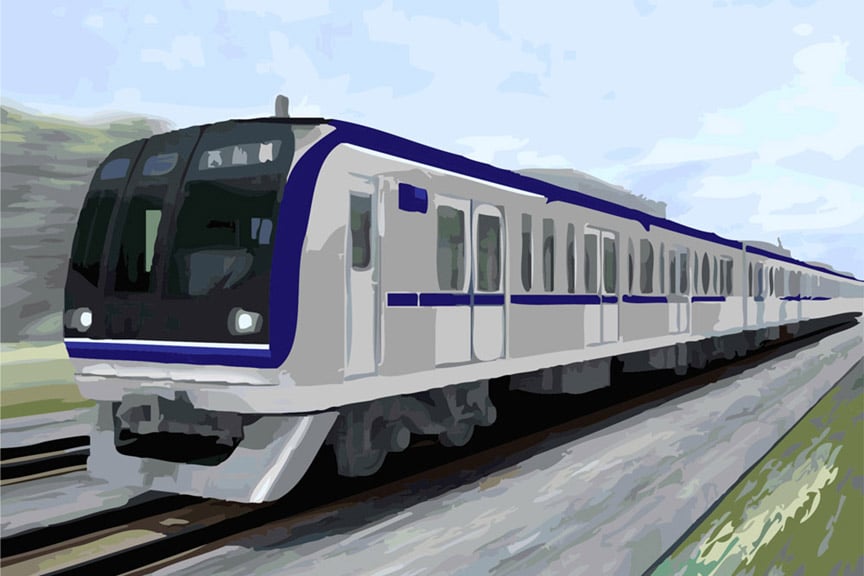The Department of Transportation (DOTr) is undertaking a “catch-up plan” for the implementation of the first phase of the Mindanao Railway Project (MRP) amid the delays caused by the change in scope and cost of the project.

Illustration from the Department of Transportation website.
The Phase 1 Tagum City-Davao City-Digos City (TDD) line needs another approval from NEDA-ICC brought about by the change in scope and cost of the project after DOTr changed it to two-track electricity-run railway instead of one-track and diesel-run locomotive.
Pending approval of the NEDA-ICC, she said the DOTr undertakes the catch-up plan, including geo-technical works from Davao City to Digos City. The Davao City-Tagum City portion has just been completed, she added.
Another preparation is the environmental survey which they expect to be completed by January 2019, so that the environmental compliance certificate will be released by February, she said.
The DOTr hopes to start the construction of Phase 1 by first quarter of next year.
“The timeline has not yet changed as far as I know. Catch up plan is being implemented the best we can,” she said.
Ruivivar said they will have to ask the Land Bank of the Philippines and Development Bank of the Philippines to appraise the values of the properties located along the path of the TDD line but the DOTr will tap the services of private appraisers if the two state-owned banks cannot commit to finish it within its desired timeframe.
She said the DOTr wants the affected properties along the 102-kilometer phase 1 appraised by December 2018.
Ruivivar previously said the Chinese Government will finance the railway project through Official Development Assistance (ODA) fund.
“It’s a done deal,” Ruivivar said in a press conference on August 31.
Phase 1 costs about P130 billion.
According to DOTr, the railway’s first segment will reduce travel time from Tagum City, Davao del Norte to Digos City, Davao del Sur from 3.5 hours to 1.3 hours once it starts operating in 2022.
Upon project completion, the DOTr expects the daily ridership of the Tagum-Davao-Digos segment to increase to 134,060 by 2022.
